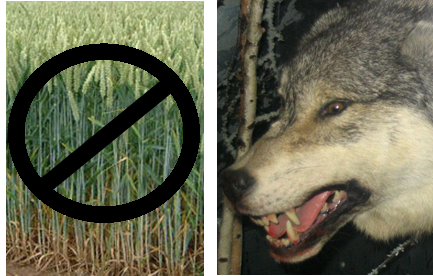Wolves or Tares?
In this review essay, Father William De Arteaga responds to Episcopal Bishop Edward Little’s article “Living with Tares: Why I stay in a Church that has seriously strayed from biblical teaching” that appeared in the March 2006 issue of Christianity Today.

Edward S. Little II, “Living with Tares: Why I stay in a Church that has seriously strayed from biblical teaching” Christianity Today (March 2006), page 69ff.
The Episcopal Bishop Edward Little has given us a thoughtful explanation of why some orthodox believers, including himself, stay within the Episcopal Church. To many Evangelicals it seems incredible why any orthodoxy brother should choose to do so. Those of us who came out of the Episcopal Church recognize Bishop Little’s dilemma, to stay or to leave a denomination that has nurtured us for years. Many orthodox Episcopalians are “hanging on,” awaiting with great expectation that Bishop Robert Duncan of Pittsburgh, with the blessings of the orthodox Archbishops of the Africa and Asia, will lead a renewed orthodox North American Anglicanism separated legally and theologically from the Episcopal Church.
And yet I am bothered by Bishop Little’s argument. Instead of saying he is fighting a rear guard action, protecting his flock, and waiting for a renewed Anglicanism to form, he tries to stake a “higher ground” based on John 17 prayer for Christian unity. This moves his argumentation, I believe, from tactical necessity to erroneous theology by reason of failed discernment and misplaced identity.
Bishop Little frames the argument in terms of letting the good “wheat” grow among “tares,” and then allow for God’s judgment at its proper time (Matt. 13:24-29). Thus the responsibility of separating or not from an apostate church is postponed indefinitely. More to the point, as Bishop he is not looking out for the spiritual safety and security of those entrusted to him. Scripture is very clear about false prophets and teachers as danger to the immature sheep. In Matthew 7:15-19 Jesus warns us of false teachers and prophets in the strongest of terms:
Watch out for false prophets. They come to you in sheep’s clothing, but inwardly they are ferocious wolves. By their fruit you will recognize them. Do people pick grapes from thorn bushes, or figs from thistles? Likewise every good tree bears good fruit, but a bad tree bears bad fruit. A good tree cannot bear bad fruit, and a bad tree cannot bear good fruit. Every tree that does not bear good fruit is cut down and thrown into the fire. (NIV)
This passage is particularly appropriate for the present situation in the Episcopal Church because those who advocate legitimizing homosexual unions posture themselves as prophets who for a while must suffer calumny, but in the future will be revealed as having pioneered a new truth form God. This delusion is based on liberal theology and its assumption that Holy Scripture is tentative, and the Holy Spirit can go contrary to the plain understanding of the Bible.


